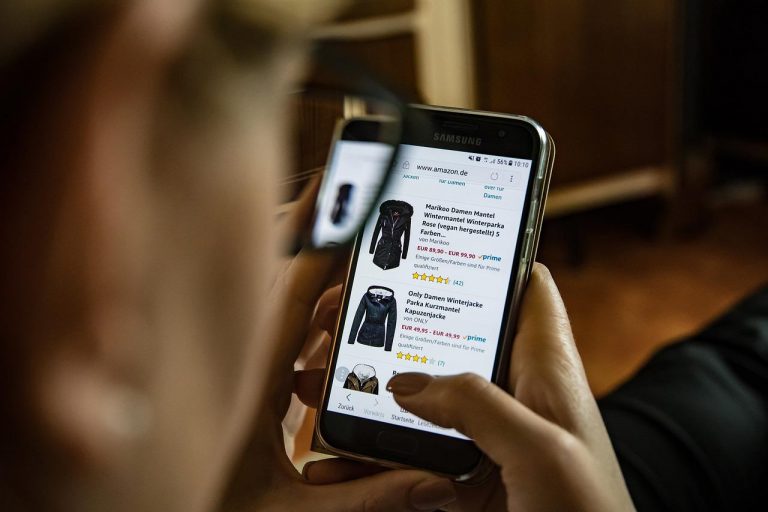By Noam Rabinovich, Co-founder of EverC
For ecommerce marketplaces, the risks involved with losing consumer trust are skyrocketing, as more and more Americans move to a myriad of internet options for their purchases. The US Census estimates that total ecommerce sales rose to $870.8 billion in 2021, a staggering increase of 14.2% from 2020. The top four global online marketplaces alone receive nearly 8 billion visits a month, and that’s just a fraction of the total number of online market visits. As reported in an EverC/Ipsos survey conducted in November and December of 2021, 72% of shoppers report using ecommerce marketplaces once a month or more.
However, customer loyalty to individual brands has plummeted, and buyers are experimenting with new shopping alternatives at unprecedented rates. In fact, 75% of US consumers tried a new shopping behavior in response to economic pressures, store closings and changing priorities over the past two years. Although businesses have replaced government and media as the most trusted institutions in 2021, 74% of consumers say they will stop purchasing from brands that break their trust.
What this means is that to thrive today, companies need to maintain customer trust or risk losing market share and revenue. Brand trust and reputation now demand more than lip service — they’re moving from nice-to-haves to foundational requirements for doing business in online commerce. Yet at the same time, we are also experiencing an explosive growth in the sale of counterfeit and pirated goods across the digital world, especially on the most popular ecommerce platforms and online marketplaces such as Amazon. And each of these sales represents not only a threat to consumer trust — the risks can extend to physical, legal and financial damages.
To understand the extent and impact of fraud for marketplaces, consider this: nearly $1 trillion worth of fake goods flood the global economy each year. Amazon blocked 10 billion attempted counterfeit listings in 2020 alone, while seizing more than 2 million counterfeit products. And most fake goods are ordinary consumer items that people trust, such as baby formula, hand soap and bike helmets, not exotic couture products.
The Crisis for Ecommerce
Sales of counterfeit goods or controlled substances can result in legal actions, stiff fines and regulatory exposure. They also have a direct impact on brand trust for ecommerce marketplaces. Four in ten consumers (41%) say their experiences receiving fraudulent products have negatively impacted their willingness to make purchases from ecommerce sites. And 88% of Americans think ecommerce marketplaces should be liable for counterfeit, illegal products sold on their websites.
Online retailers may think they only need to focus on their own compliance strategies to protect themselves from these risks. However, damage to brand trust attaches to the entire marketplace experience. When consumers have an unfavorable experience with one online market site, they can easily lose confidence in the overall process. They may feel that more trustworthiness is provided by shopping on the websites of individual brands or, as the pandemic recedes, in brick-and-mortar shops.
The risks posed by counterfeit products are unsustainable for online marketplaces — and they are unacceptable for online consumers. This is why SaaS products are now being developed to quickly provide what no human-based process ever could: the ability to identify and eliminate rogue listings from the billions of items for sale online.
Driven by artificial intelligence and machine learning, these platforms can identify illicit products at scale to offer brand protection and regulatory compliance. And with greater visibility into the dark corners of the web, ecommerce marketplaces can move to eliminate counterfeit products, ensure shopper safety and peace of mind, and defend both their reputations and their bottom lines.
About the author

As a Co-Founder and Head of MarketView for EverC, Noam Rabinovich leads the team that created the first automated solution to identify and eliminate hazardous, counterfeit, and recalled products in online portfolios, trusted by the biggest marketplaces in the world. Prior to MarketView Noam was the CTO for EverC were he led multiple teams responsible for building the market’s leading solutions for eCommerce risk management that focus on merchants and the products they sell. The technologies and patent pending solutions developed protect payment providers and merchant banks, enabling their growth by identifying suspicious activities in merchants’ portfolios during their onboarding phase and throughout their entire life cycle. Noam holds a B.Sc. in computer science and economics From Tel-Aviv University.
EverC’s MarketView uses proprietary AI/ML technology to keep ecommerce marketplaces safe from harmful and fake products by analyzing text, images, dynamic metadata and more, to deliver actionable insights for brand trust and protection. Find out more.
Related Articles

Beyond the AI Hype: Why Retailers Are Doubling Down on Real-time Inventory
AI assistants can now take shoppers from search to checkout and breeze right past a merchant’s website. The traditional product discovery and purchasing journey are now happening inside AI channels, and major platforms are all aligning on this new shopping protocol.

How to Manage Your Amazon Seller Account Effectively in 2026?
Learn key strategies for managing your Amazon seller account in 2026, including listing optimization, account health management, inventory control, and advertising.

Transaction-Level Data Is Raising the Bar for Attribution and Accountability
For retailers building or scaling retail media and broader commerce marketing programs, this shift reshapes how audiences should be built and forces a more disciplined approach to transparency and cross-channel accountability.

How Rising Consent Awareness Is Reshaping Customer Experience, Data Quality, and Campaign Performance
It also revealed that another 35% expect to deploy personalized AI recommendations in the next year, as AI moves from pilots into the heart of omnichannel journeys, search and merchandising.


 for the latest news and job opportunities in retail tech
for the latest news and job opportunities in retail tech 